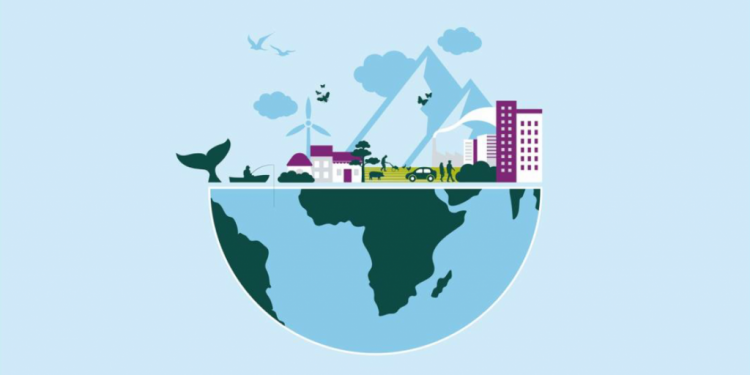Dhanada K Mishra
In 2019, the treasury department of the UK government commissioned Prof. Sir Partha Dasgupta of Cambridge University to carry out a comprehensive global review of the economics of biodiversity. Coming on the heels of the IPCC’s ‘Special Report: Global Warming of 1.5 ºC’ and the onset of the global pandemic, the review couldn’t have been timed any better. With the delayed UN Biodiversity conference scheduled for later this year, the report assumes even greater significance. It was important that the scope of the review was global and the mandate was for an economic review commissioned by the treasury rather than the environment department. What ecologists and environmentalists have been saying since the 1970s finally had a willing ear among the economists mandated by policymakers in power worried about the future risks for global finance. It couldn’t have come any sooner!
Eminent persons from diverse domains have praised the report for its depth, vision, lucidity and courage to prescribe some tough yet much-needed action. The great naturalist Sir David Attenborough captured the crisis well in his foreword – “Today, we ourselves, together with the livestock we rear for food, constitute 96% of the mass of all mammals on the planet. Only 4% is everything else – from elephants to badgers, from moose to monkeys. We are destroying biodiversity, the very characteristic that until recently enabled the natural world to flourish so abundantly. If we continue this damage, whole ecosystems will collapse. That is now a real risk.” The enormity of the crisis is established beyond doubt diligently and elaborately with a mountain of evidence drawn from the best of recent research in the Dasgupta review.
Among the almost near-universal appreciation for the report, there were some voices of concern – particularly regarding the idea of treating nature as capital. It can be argued that this very idea of treating nature as an asset to be exploited was fundamentally the basis of wealth as defined by Adam Smith, who had conceptualised it without coining the term as such. Natural capital is defined as the idea of natural resource production independent of human intervention. It has been the source for extraction as well as the sink for dumping all of our waste to create much of our ‘produced’ and ‘human’ capital without ever its depreciation accounted for in the ledger. This free ride has been hailed and indeed the efficiency with which humans could exploit the natural capital was considered the hallmark of progress and civilization. Therefore, treating nature as ‘capital’ at par with other forms of ‘capital’ does raise the concern that fundamentally it would not help address the crux of the existential crisis faced by humanity.
The Dasgupta review is broadly divided into two major parts. The first part of the review is about establishing in rigorous yet accessible terms the journey to the precipice, particularly in the period starting 1970. The last 50 years have been epoch-making in human history in the way exponential change has taken place in a very short period. Global GDP per capita has increased about four times, average life expectancy from 49 to 76 years, absolute poverty has fallen from 60% to around 10% and so on. The list of human achievements is endless in the period we have come to know as the ‘Anthropocene’ – an age where the homo sapiens have come to dominate nature in a way unprecedented in the history of life on earth. So much so that the ratio of our impact to the supply we take from nature in terms of ecosystem services has gone from about 1.0 to 1.6 over the same period. In other words, we currently need 1.6 earths to support the prevailing consumerist economy notwithstanding the abject disparity that exists among regions.
Articulating ecosystem services as natural capital, whose depreciation to be accounted for in the calculation of an alternative ‘green GDP or as some have started terming it Gross Ecosystem Product or GEP’ measurement is certainly an important idea. Any prudent portfolio manager would do so in order to mitigate the future risk of investment and clearly, the mandarins of global capitals are seriously concerned both on account of climate change and biodiversity loss. However, this is by no means an original or first of its kind proposition. The second part of the report consists of wide-ranging recommendations to arrest the rapid slide in the stock of natural capital. From the inequality between the human impact on the demand side and ecosystem services on the supply side, it is clear that all steps must be taken to reduce demand and increase supply. Enforcing new standards for reuse, recycling and disposal, imposing new taxes on unsustainable activity, and mandating global supply chains to adhere to environmental norms would be important to reduce demand. So also by boosting investment in women’s education and empowerment which has proven to reduce fertility rate to reduce population pressures. Given that it is far less expensive to conserve rather than restore natural ecosystems, substantial financial incentives must be put in place for communities to preserve life-giving forests, watersheds and mangroves and the like. Given that the poor are more directly dependent on nature, this will go a long way in addressing the economic disparity between the global north and south.
The world has a very poor record in meeting self-imposed targets, for example the 20 Aichi biodiversity targets agreed in Japan in 2010 to protect coral reefs, remove government subsidies that damage nature, and tackle pollution. It was the second consecutive decade that governments failed to meet targets. The Kunming summit may be humanity’s last chance to set ambitious goals. The Covid pandemic has shown that unimaginable action such as the complete shutdown of economies is possible in the face of imminent calamity as humanity responded with great alacrity. Hopefully, the Dasgupta review may be a key driver for such a massive response as warranted to ward off the biodiversity loss disaster.
Tolstoy, Ruskin and especially Gandhi among others showed a path well before the age of the Anthropocene which holds the key to the future survival of mankind. The natural next step for humanity is to consider a spiritual approach towards our treatment of nature. Our treatment of nature must transcend an asset-centric mindset to realise the true sanctity as the source of our very being, all life, living, consumption and well being.
The author, a Civil Engineer, academician and technologist, is currently serving as Technical Director in RaSpect Intelligence Inspection Limited, Hong Kong.






































